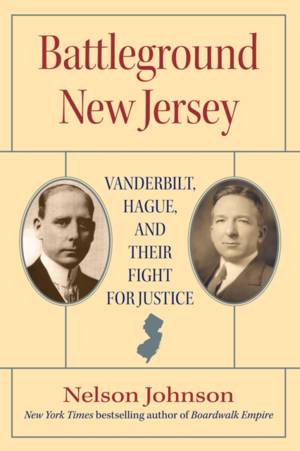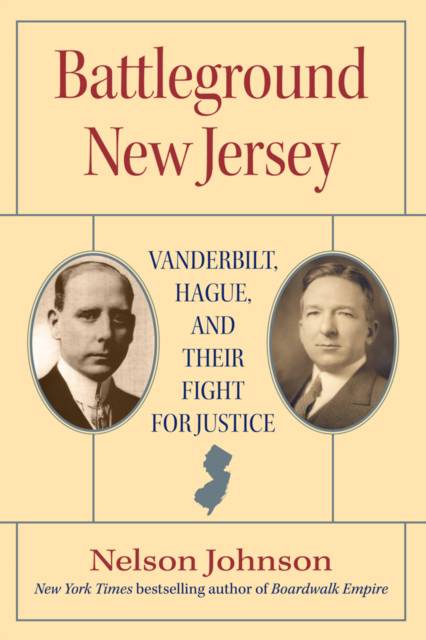
- Afhalen na 1 uur in een winkel met voorraad
- Gratis thuislevering in België vanaf € 30
- Ruim aanbod met 7 miljoen producten
- Afhalen na 1 uur in een winkel met voorraad
- Gratis thuislevering in België vanaf € 30
- Ruim aanbod met 7 miljoen producten
Zoeken
€ 43,45
+ 86 punten
Omschrijving
New Jersey's legal system was plagued with injustices from the time the system was established through the mid-twentieth century. In Battleground New Jersey, historian and author of Boardwalk Empire, Nelson Johnson chronicles reforms to the system through the dramatic stories of Arthur T. Vanderbilt--the first chief justice of the state's modern-era Supreme Court--and Frank Hague--legendary mayor of Jersey City. Two of the most powerful politicians in twentieth-century America, Vanderbilt and Hague clashed on matters of public policy and over the need to reform New Jersey's antiquated and corrupt court system. Their battles made headlines and eventually led to legal reform, transforming New Jersey's court system into one of the most highly regarded in America. Vanderbilt's power came through mastering the law, serving as dean of New York University Law School, preaching court reform as president of the American Bar Association, and organizing suburban voters before other politicians recognized their importance. Hague, a remarkably successful sixth-grade dropout, amassed his power by exploiting people's foibles, crushing his rivals, accumulating a fortune through extortion, subverting the law, and taking care of business in his own backyard. They were different ethnically, culturally, and temperamentally, but they shared the goals of power.
Relying upon previously unexamined personal files of Vanderbilt, Johnson's engaging chronicle reveals the hatred the lawyer had for the mayor and the lengths Vanderbilt went to in an effort to destroy Hague. Battleground New Jersey illustrates the difficulty in adapting government to a changing world, and the vital role of independent courts in American society.
Relying upon previously unexamined personal files of Vanderbilt, Johnson's engaging chronicle reveals the hatred the lawyer had for the mayor and the lengths Vanderbilt went to in an effort to destroy Hague. Battleground New Jersey illustrates the difficulty in adapting government to a changing world, and the vital role of independent courts in American society.
Specificaties
Betrokkenen
- Auteur(s):
- Uitgeverij:
Inhoud
- Aantal bladzijden:
- 288
- Taal:
- Engels
- Reeks:
Eigenschappen
- Productcode (EAN):
- 9780813569727
- Verschijningsdatum:
- 5/12/2014
- Uitvoering:
- Hardcover
- Formaat:
- Genaaid
- Afmetingen:
- 152 mm x 237 mm
- Gewicht:
- 612 g

Alleen bij Standaard Boekhandel
+ 86 punten op je klantenkaart van Standaard Boekhandel
Beoordelingen
We publiceren alleen reviews die voldoen aan de voorwaarden voor reviews. Bekijk onze voorwaarden voor reviews.











